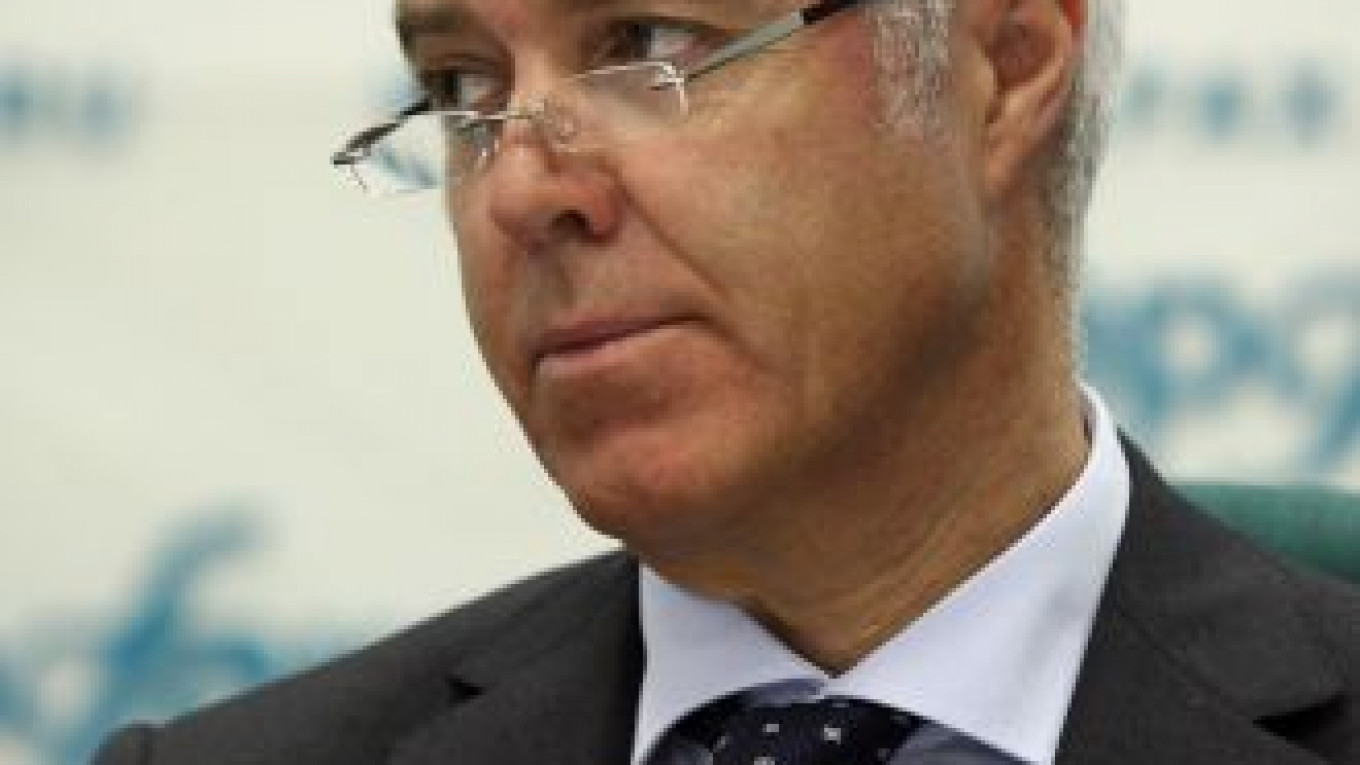The International Monetary Fund expects that inflation will reach 6.4 percent this year, IMF representative for Russia Odd Per Brekk said Thursday.
The indicator is politically sensitive in an election period. Both the Central Bank and the Ministry for Economic Development have predicted that 2012 inflation will not exceed 6 percent.
"Headline inflation has come down to 6.1 percent," Brekk said, citing the December figure, "but our analysis is that underlying inflation, which is relevant for monetary policy, has stayed at 7.5 percent to 8 percent."
In a bid to postpone inflationary kicks ahead of the presidential election on March 4, the Energy Ministry confirmed a temporary freeze on electricity and gasoline prices last week. The government has also delayed tariff hikes usually scheduled for January until July.
"Inflation is likely to stay low until at least May, before rebounding in the second half of 2012," VTB Capital analysts led by Alexander Zabotkin wrote in a note Thursday.
The IMF also warned Thursday that without systemic medium-term reforms Russia could see falling annual growth. In its updated World Economic Outlook released earlier this week, the organization cut its 2012 prognosis for Russia to 3.3 percent, down from 4.1 percent in 2011.
Brekk highlighted the need for Russia to reduce its oil budget deficit — the theoretical loss that would be incurred without oil revenues. Currently at 10 percent of GDP, an official target of 4.7 percent was suspended during the last financial crisis. Brekk said 4.7 percent could still be achieved by 2015.
But the reduction of the non oil deficit will require fundamental public sector reform and budget cuts, he added. Russia's pension system, which accounts for 8 percent of GDP at the moment, is on an "unsustainable path," Brekk said, and will reach 15 percent of GDP by 2015 under current policies.
In a "reform scenario" the IMF predicts that Russia could see annual growth of up to 6 percent.
This is, however, conditional on the global economic situation, Brekk said. A worsening of the euro zone's troubles could infect Russia as a result of collapsing commodity prices, close trade links and financial channels.
IMF calculations suggest that under today's budget position the Russian economy would enter a recession if oil prices fall below $50 a barrel.
Brekk said Russia was in some ways now more vulnerable to an external economic shock than it had been in 2008. "A further escalation of the euro area crisis would pose considerable downside risks to Russia," he said.
A Message from The Moscow Times:
Dear readers,
We are facing unprecedented challenges. Russia's Prosecutor General's Office has designated The Moscow Times as an "undesirable" organization, criminalizing our work and putting our staff at risk of prosecution. This follows our earlier unjust labeling as a "foreign agent."
These actions are direct attempts to silence independent journalism in Russia. The authorities claim our work "discredits the decisions of the Russian leadership." We see things differently: we strive to provide accurate, unbiased reporting on Russia.
We, the journalists of The Moscow Times, refuse to be silenced. But to continue our work, we need your help.
Your support, no matter how small, makes a world of difference. If you can, please support us monthly starting from just $2. It's quick to set up, and every contribution makes a significant impact.
By supporting The Moscow Times, you're defending open, independent journalism in the face of repression. Thank you for standing with us.
Remind me later.







